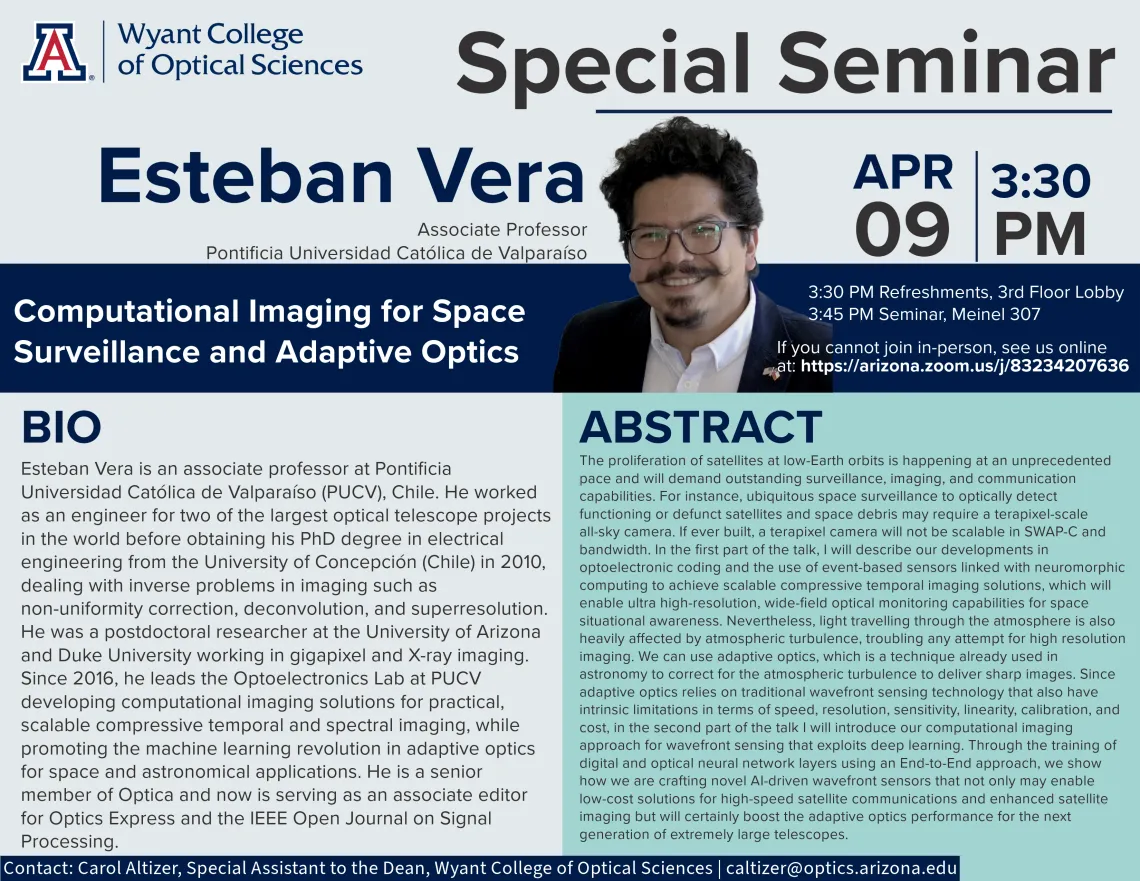
When
Where
Title
Computational Imaging for Space Surveillance and Adaptive Optics
Abstract
The proliferation of satellites at low-Earth orbits is happening at an unprecedented pace and will demand outstanding surveillance, imaging, and communication capabilities. For instance, ubiquitous space surveillance to optically detect functioning or defunct satellites and space debris may require a terapixel-scale all-sky camera. If ever built, a terapixel camera will not be scalable in SWAP-C and bandwidth. In the first part of the talk, I will describe our developments in optoelectronic coding and the use of event-based sensors linked with neuromorphic computing to achieve scalable compressive temporal imaging solutions, which will enable ultra high-resolution, wide-field optical monitoring capabilities for space situational awareness. Nevertheless, light travelling through the atmosphere is also heavily affected by atmospheric turbulence, troubling any attempt for high resolution imaging. We can use adaptive optics, which is a technique already used in astronomy to correct for the atmospheric turbulence to deliver sharp images. Since adaptive optics relies on traditional wavefront sensing technology that also have intrinsic limitations in terms of speed, resolution, sensitivity, linearity, calibration, and cost, in the second part of the talk I will introduce our computational imaging approach for wavefront sensing that exploits deep learning. Through the training of digital and optical neural network layers using an End-to-End approach, we show how we are crafting novel AI-driven wavefront sensors that not only may enable low-cost solutions for high-speed satellite communications and enhanced satellite imaging but will certainly boost the adaptive optics performance for the next generation of extremely large telescopes.
Bio
Esteban Vera is an associate professor at Pontificia Universidad Católica de Valparaíso (PUCV), Chile. He worked as an engineer for two of the largest optical telescope projects in the world before obtaining his PhD degree in electrical engineering from the University of Concepción (Chile) in 2010, dealing with inverse problems in imaging such as non-uniformity correction, deconvolution, and superresolution. He was a postdoctoral researcher at the University of Arizona and Duke University working in gigapixel and X-ray imaging. Since 2016, he leads the Optoelectronics Lab at PUCV developing computational imaging solutions for practical, scalable compressive temporal and spectral imaging, while promoting the machine learning revolution in adaptive optics for space and astronomical applications. He is a senior member of Optica and now is serving as an associate editor for Optics Express and the IEEE Open Journal on Signal Processing.
